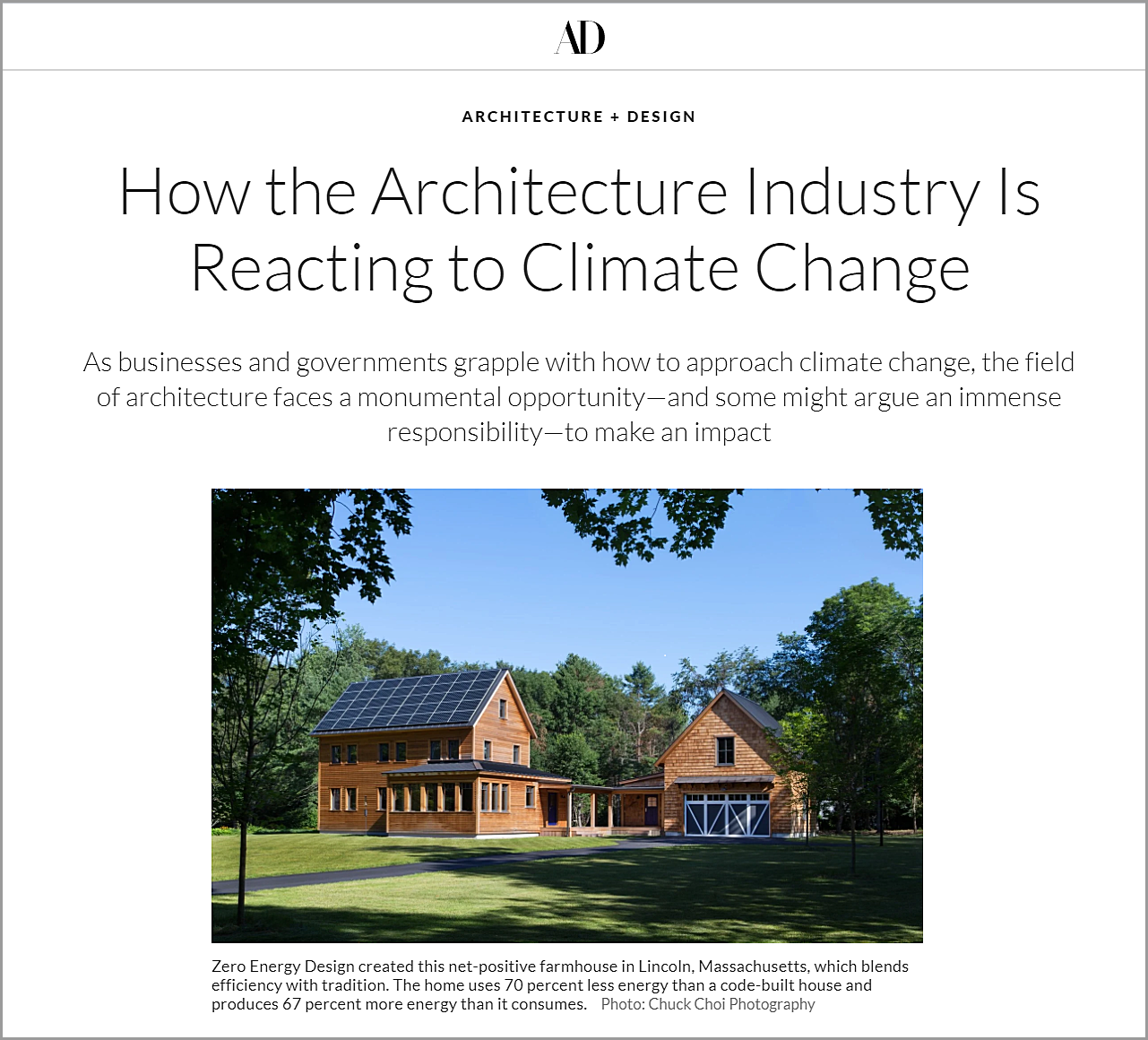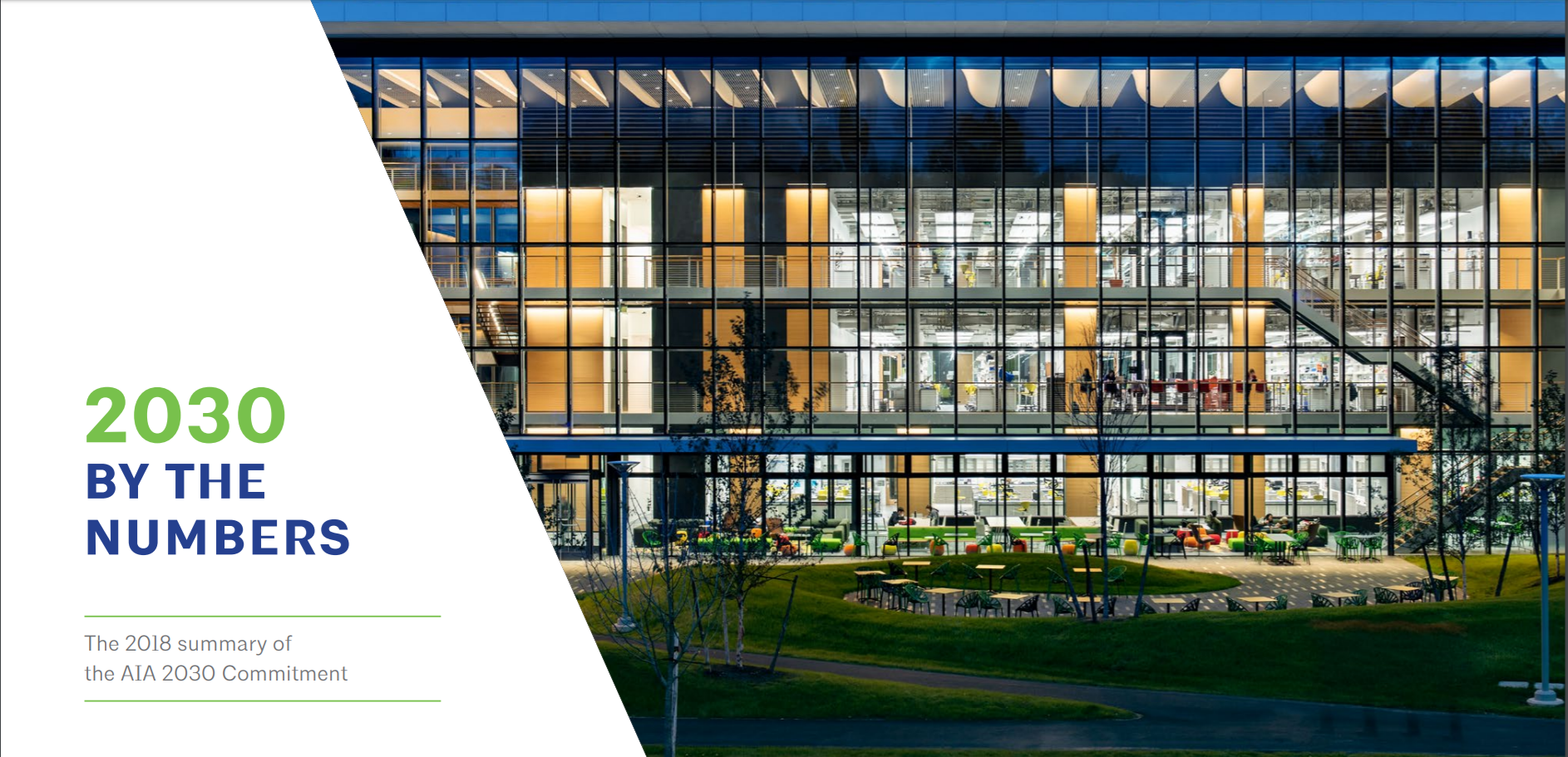Architectural Digest took a close look at the impact of the building and construction sector on climate change and what the architecture industry is doing to make a difference.
The article contains insights from leading industry experts, including AIA President Jane Frederick, Bjarke Ingels of BIG, and ZED Managing Director, Stephanie Horowitz.
In her interview for the article, Horowitz highlighted the importance of thinking ahead and designing and building today’s homes and buildings in alignment with the upcoming benchmarks for climate change. She also pointed out that it was not only new construction that needed to be addressed. “The new homes that we design and build are the low-hanging fruit. The challenge is the existing housing,” Horowitz said.
According to the AIA, 82% of the commercial buildings in the U.S. were built before 2000 - before the modernization of building energy codes for design and construction.
Full article is linked below.
MORE: ARCHITECTURAL DIGEST





